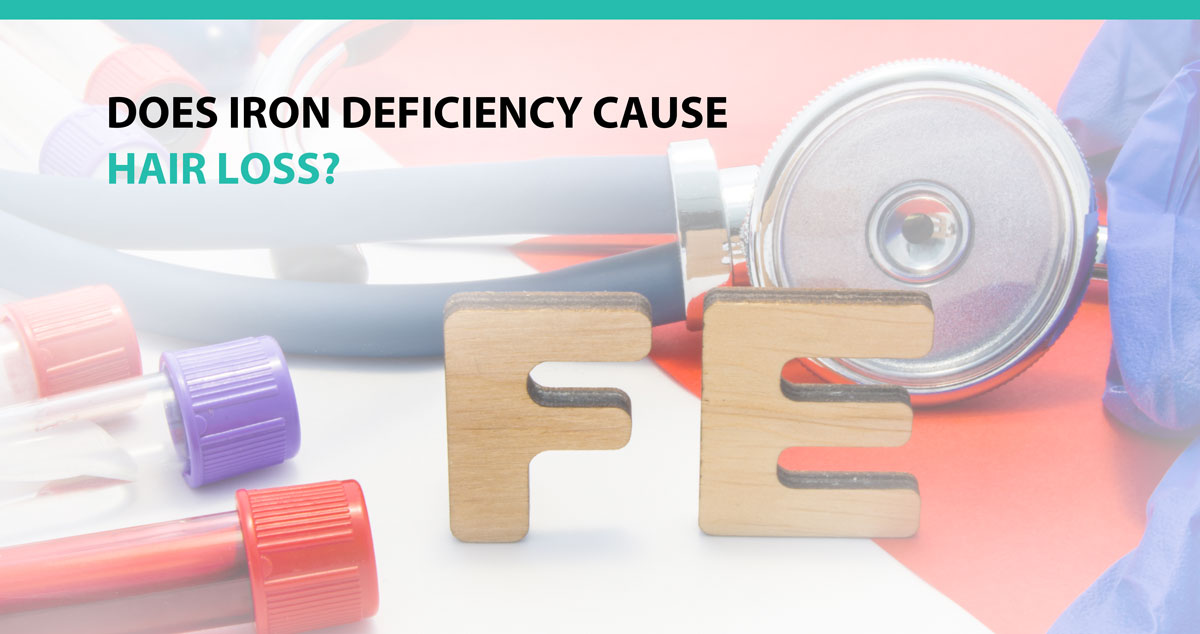
The short answer is: Maybe.
If you are concerned that you might be experiencing Iron Deficiency, you need to visit your Primary Care Doctor to discuss your symptoms, which might include Hair Loss, and treatment options.
What Is Iron Deficiency?
The most common form of Iron Deficiency is Iron Deficiency Anemia (IDA), which causes a chain reaction that affects much of the cellular level of a person’s body. Iron helps make new Red Blood Cells in your body, which then provide Oxygen to body tissues and organs – including Hair Follicles.
While IDA is most common among women and children, men are still susceptible to it as well, so it is important to be sure to check with your Primary Care Doctor about any concerns you might have related to Iron Deficiency.
With IDA, the basic building blocks of healthy cellular growth are inhibited because of these chain reactions, which is why researchers are still trying to determine exactly what the connection between this Iron Deficiency and Hair Loss is.
So, while there is not enough evidence to be absolutely certain that IDA is a cause of Hair Loss, there is some evidence that there is possibly a connection between the two.
Most of the research in this area has focused on Iron Deficiency in women because it is far more common in women than men – twice as much in fact – and the focus of those research papers is usually on the Iron Deficiency rather than the Hair Loss itself.
Even so, there is still a lot of research being conducted in this area, including world-renowned medical colleges such as Columbia University, which Hair Loss experts are watching closely to ensure they are providing the most up-to-date treatments for their clients.
How Does This Relate to My Hair?
Although there is not enough evidence to conclude that IDA causes Hair Loss, the fact that there is some connection between the two means that Hair Loss Doctors have been able to learn a lot from these studies.
The good news is that when Hair Loss is connected to Iron Deficiency, there is much less, and often not any, scarring of the Hair Follicles. This means that consulting an industry expert, such as Dr. Joseph Williams, early can provide you with more options for Hair Restoration because there is potential for those Follicles to still grow hair upon treatment of the underlying conditions.
Dr. Williams, who specializes in Hair Loss of all types, understands that every patient has specific needs and desired outcomes when they visit him for a consultation, and he can work with you to identify the best course of action and help plan for the long-term – whatever that may be.
What Options Do I Have After Managing My Iron Deficiency?
There are many things to consider before your doctor will be able to determine what the best options are for you, but in the cases of Hair Loss, they are likely to include:
Low Level Laser Therapy (LLLT) – This procedure is usually reserved for cases of Thinning Hair due to Hereditary Hair Loss, but with the restoration of healthy flow of nutrients to your Follicles, LLLT is one possibility to help Stimulate the growth of your own hair using pulses of light.
Follicular Unit Transfer (FUT) – Sometimes the Hair Follicles will stop being active, whether due to Iron Deficiency or other factors, and in these cases FUT is a viable option to safely replace sections of hair from Donor Areas – usually from the back and side of your own scalp! – to the places most affected by Thinning or Hair Loss. Dr. Williams is a recognized expert in this procedure, and his careful technique minimizes scarring and helps you obtain the most natural look possible to restore your confidence.
Other Options
Dr. Williams also offers other options, such as Follicular Unit Excision (FUE) and Scalp Micro-Pigmentation (SMP), depending on what best suits your needs and lifestyle. But the best way to find out what will work best for you is to simply schedule a consultation today so you can move forward with confidence in your look, no matter the cause of your Hair Loss.










